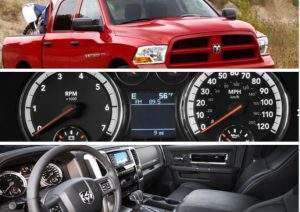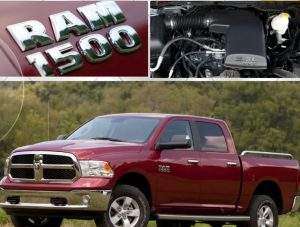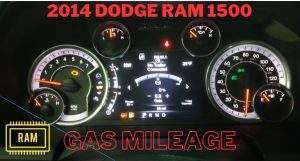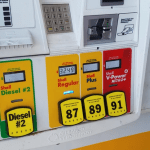The BMW X1 is a popular luxury compact crossover SUV that has been in production since 2009. As a BMW owner, you know that owning a BMW is not just about owning a car but a lifestyle.
You care about your vehicle’s performance, durability, and efficiency, and one of the ways to maintain these features is by fueling your car with the right gasoline.
In this article, we will guide you through the type of gasoline that is recommended for your BMW X1, the benefits of using premium gasoline, and tips to optimize your fuel efficiency.
What Gas Does BMW X1 Take?
The BMW X1 requires premium unleaded gasoline with an octane rating of at least 91. Most of people suggest using 93 primum unleaded gas. It is recommended for all BMW models, including the X1, to ensure optimal performance and fuel efficiency.
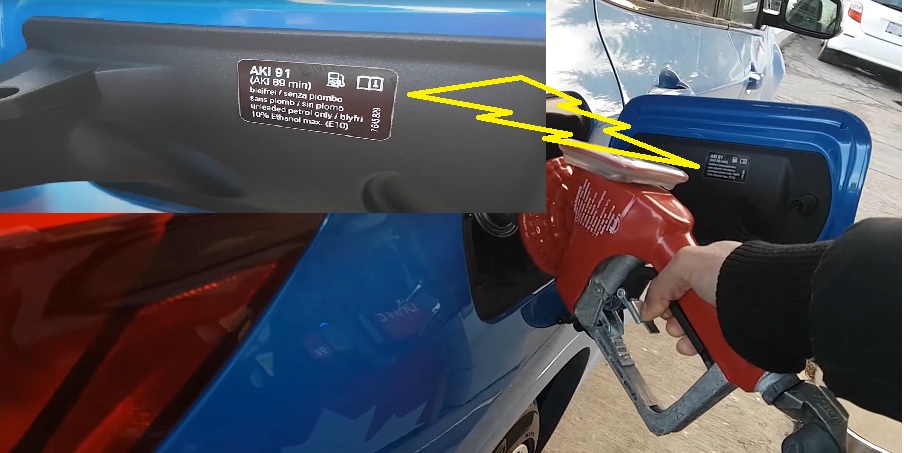
Using lower octane gasoline may cause knocking or pinging in the engine, which can lead to engine damage over time.
Octane Rating Explained
Octane rating measures the gasoline’s ability to resist engine knocking or pinging during combustion. Engine knocking occurs when the air/fuel mixture in the engine cylinder explodes prematurely, causing a knocking sound.
This can cause damage to the engine over time. High-octane gasoline has a higher resistance to knocking, making it ideal for high-performance engines like the BMW X1.
Tips for Fueling Your BMW X1
- Always use premium unleaded gasoline with an octane rating of at least 91.
- Avoid using lower octane gasoline or diesel fuel, which can damage the engine.
- Do not mix gasoline types, such as mixing regular gasoline with premium gasoline.
- Use a gasoline brand that meets BMW’s standards and specifications.
- Do not overfill the gas tank, as this can cause fuel to spill out and damage the vehicle.
- Do not let the gas tank get too low, as this can cause the fuel pump to work harder and wear out faster.
Benefits of Using Premium Gasoline
- Improved Performance: Premium gasoline has a higher octane rating, allowing the engine to perform better and generate more power. This means a smoother ride and better acceleration.
- Better Fuel Efficiency: The higher octane rating in premium gasoline allows for more efficient fuel combustion, which translates to better fuel economy. This means you’ll get more mileage out of each tank of gas.
- Reduced Emissions: Premium gasoline has fewer impurities, resulting in fewer emissions and a cleaner running engine. This means a more eco-friendly ride.
- Longer Engine Life: Using premium gasoline can help keep your engine running smoothly and reduce the likelihood of costly repairs down the road.
Risks of Using Low-Quality Gasoline
Using low-quality gasoline in your BMW X1 can have several negative effects, including:
- Reduced Performance: Low-quality gasoline can cause engine knocking and reduce performance, leading to a rough ride and slower acceleration.
- Reduced Fuel Efficiency: Low-quality gasoline can also result in poor fuel economy, meaning you’ll have to fill up more often and spend more money on gas.
- Engine Damage: Using gasoline with a low octane rating can cause engine damage over time, resulting in costly repairs.
- Emissions: Low-quality gasoline can produce more emissions, harming the environment and potentially causing your vehicle to fail emissions tests.
Fuel Efficiency Tips for BMW X1
In addition to using premium gasoline, there are several things you can do to optimize your BMW X1’s fuel efficiency. Here are some tips:
- Drive efficiently: Avoid sudden acceleration, hard braking, and high speeds, as these can reduce fuel economy.
- Keep your tires properly inflated: Under-inflated tires can increase rolling resistance, making your engine work harder and reducing fuel efficiency.
- Regular maintenance: Regular oil changes, air filter replacements, and tune-ups can help keep your engine running smoothly and efficiently.
- Avoid excessive idling: If you’re parked or stuck in traffic for an extended period, turn off the engine to save fuel.
Factors That Affect BMW X1 Fuel Efficiency
Several factors can affect your BMW X1’s fuel efficiency, including:
- Driving Conditions: Stop-and-go traffic, hilly terrain, and extreme weather conditions can all affect fuel economy.
- Driving Habits: Aggressive driving, speeding, and excessive idling can all reduce fuel efficiency.
- Vehicle Maintenance: Regular maintenance, including oil changes and tune-ups, can keep your engine running smoothly and efficiently.
- Cargo and Passenger Load: Carrying excessive cargo or passengers can increase weight and reduce fuel economy.
Common Misconceptions About BMW X1 Gasoline
- Higher octane means more power: While high-octane gasoline can provide more power, it won’t necessarily improve your BMW X1’s performance if it doesn’t require it.
- Premium gasoline is a waste of money: While premium gasoline may cost more, the benefits of improved performance and fuel efficiency outweigh the extra cost.
- All premium gasoline is the same: While premium gasoline has an octane rating of 91 or higher, different brands may have different additives and qualities that can affect performance.
How to Check Your BMW X1 Fuel Level
Checking your BMW X1’s fuel level is easy. Simply locate the fuel gauge on your dashboard and look for the fuel level indicator. The fuel gauge will show you how much fuel is remaining in your tank. It’s recommended to fill up your tank before it reaches the empty mark to avoid running out of gas.
What to Do If You Put the Wrong Gasoline in Your BMW X1
accidentally put the wrong gasoline in your BMW X1, there are several steps you should take:
- Stop driving immediately: If you realize that you’ve put the wrong gasoline in your BMW X1, stop driving as soon as it’s safe to do so.
- Check your owner’s manual: Check your owner’s manual to determine what type of gasoline your BMW X1 requires.
- Drain the fuel tank: If you’ve put diesel fuel in your BMW X1, you’ll need to have the fuel tank drained and the fuel system flushed. If you’ve put regular gasoline in a car that requires premium gasoline, you may be able to dilute the gasoline by adding a full tank of the correct gasoline.
- Have your vehicle inspected: If you’ve put the wrong gasoline in your BMW X1, have it inspected by a mechanic to ensure that there’s no damage to the engine or fuel system.
Final Thought
Using the right gasoline in your BMW X1 is essential for maintaining optimal performance, fuel efficiency, and engine life. While premium gasoline may cost more, the benefits of improved performance, fuel efficiency, and reduced emissions make it a worthwhile investment.
By following the fuel efficiency tips and maintaining your vehicle regularly, you can ensure that your BMW X1 runs smoothly and efficiently for years to come.
What happens if I put regular gasoline in my BMW X1 that requires premium gasoline?
If you put regular gasoline in a car that requires premium gasoline, it may cause knocking or pinging noises, reduced performance, and decreased fuel efficiency. Over time, it can also lead to engine damage.
Can I use diesel fuel in my BMW X1?
No, diesel fuel is not compatible with gasoline engines and using it can cause severe damage to the engine and fuel system.
How do I know what type of gasoline my BMW X1 requires?
You can find the recommended gasoline type in your owner’s manual or on the gas cap. BMW X1 typically require premium gasoline with an octane rating of 91 or higher.
Can I switch between different types of gasoline in my BMW X1?
It is generally recommended to use the recommended gasoline type for your BMW X1. However, if necessary, you can switch between different types of gasoline as long as they meet the recommended octane rating.
What should I do if I accidentally put the wrong gasoline in my BMW X1?
If you accidentally put the wrong gasoline in your BMW X1, stop driving immediately, check your owner’s manual, drain the fuel tank if necessary, and have your vehicle inspected by a mechanic.

